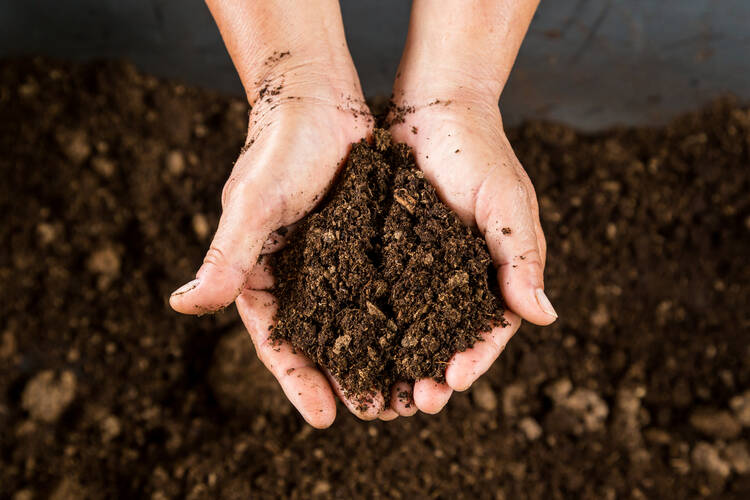(OSV News)—Two new alternatives to burial and cremation fail to comply with the Catholic Church’s teaching on respect for the bodies of the dead, the U.S. Conference of Catholic Bishops’ Committee on Doctrine said.
In a March 23 statement, the committee said it had evaluated human composting and alkaline hydrolysis, and concluded that both “fail to satisfy the Church’s requirements for proper respect for the bodies of the dead.”
The methods, which rapidly accelerate decomposition, have gained support in recent years as “eco-friendly” forms of treating human remains.
In human composting, the body of the departed is placed in a metal bin with plant material to enable microbes and bacteria, along with heat and oxygen, to break down bones and tissues. The resulting mixture is then offered for lawn or garden use.
Human composting and alkaline hydrolysis do not “show adequate respect for the human body, nor express hope in the resurrection,” said the bishops.
Alkaline hydrolysis dissolves the body in some 100 gallons of water and alkali under high temperature and pressure. Within hours, the body is dissolved, except for some bone material which is then dried and pulverized.
Unlike flame-based cremation, which uses intense heat to reduce human remains to ashes, human composting and alkaline hydrolysis do not “show adequate respect for the human body, nor express hope in the resurrection,” said the bishops in the seven-page document that accompanied their statement.
Burial is “the most fitting way to express faith and hope in the resurrection of the body,” wrote the bishops, quoting the 2016 instruction “Ad resurgendum cum Christo: regarding the burial of the deceased and the conservation of the ashes in the case of cremation” by the Congregation for the Doctrine of the Faith. The congregation is now the Dicastery for the Doctrine of the Faith.
Both human composting and alkaline hydrolysis leave nothing that could be properly interred, said the U.S. bishops.
According to the 2016 instruction, flame-based cremation is permissible, so long as the ashes are gathered and laid to rest in a sacred place, rather than being stored at home, distributed among loved ones, encased in jewelry or scattered broadly.
In contrast, both human composting and alkaline hydrolysis leave nothing that could be properly interred, said the U.S. bishops.
Following alkaline hydrolysis, “there are about 100 gallons of liquid into which the greater part of the body has been dissolved, and this liquid has been treated as wastewater,” they wrote. “At the end of the human composting process (there is) ... nothing distinguishably left of the body to be laid to rest in a sacred place.”
Currently, six U.S. states—California, Colorado, New York, Oregon, Vermont and Washington—permit human composting.
Katrina Spade, founder and CEO of Seattle-based Recompose, the self-described “first human composting company in the world,” said in a 2021 video interview that “you’re not human anymore at the end of this process.”
Alkaline hydrolysis is legal in several states as well, with the Cremation Association of North America having expanded its definition of cremation in 2010 to include the method, which also is known as “water” or “chemical cremation.”








